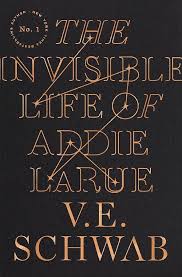Chapter XI
byChapter XI immerses us in the chaotic energy of Brooklyn on the evening of March 13, 2014, where New York City’s streets pulse with the typical hustle and bustle of nightlife. The local bars are packed with people escaping the mundane routines of daily life, each seeking a form of connection or distraction. Addie LaRue, however, is in a slightly different position as she navigates through the crowded space of the Merchant bar, accompanied by Henry. As the noise of the crowd swells around them, they retreat to a more secluded corner on the patio, hoping to find some peace from the sensory overload of the city. Yet, even in this quieter space, the hum of life outside seems impossible to avoid, with the constant clinking of glasses and murmurs of conversations reminding them of the world that moves on relentlessly, regardless of what is happening between them.
The exchange between Addie and Henry begins cautiously, with both testing the waters of their budding connection. They casually discuss the mundane, like their backgrounds and jobs, each finding something intriguing in the other’s simple truths. Addie mentions her French hometown of Villon-sur-Sarthe, but omits any mention of the fact that her voice betrays no accent, a detail she has long since learned to avoid explaining. She also cleverly sidesteps the awkwardness of her empty wallet, fabricating a small lie to keep the evening flowing. It’s a seemingly innocent fib, but the narrative shows her internal struggle with deception, especially in light of her earlier slip about The Odyssey. Despite the discomfort these small lies cause, she decides not to manipulate the situation further, sensing that the connection between her and Henry, however brief, may be more important than she realizes.
As the evening continues, Addie’s anxiety grows, not just because of her fear of being caught in her lies, but because of the underlying fear of losing this connection with Henry. The anxiety stems from her unique curse, which has shaped her life into one of eternal isolation, where everyone she meets forgets her the moment she is out of their sight. This deep-seated fear isn’t just about the possibility of losing Henry—it’s tied to the horrifying reality that she could be forgotten once again, forced to return to a life where no one remembers her presence. The thought of returning to that loneliness is almost too much to bear, and her vulnerability surfaces as she silently worries about how fleeting this connection may be. As Henry talks with ease, unaware of the depth of her fears, Addie is left silently struggling with the weight of the curse, constantly aware that the only thing that truly ties her to the world is the tenuous connections she forms.
Their conversation, seemingly light on the surface, is steeped with unspoken anxieties and desires. For Addie, this moment with Henry represents a rare chance to experience something genuine, a connection where she isn’t forgotten, a fleeting glimpse of what it might be like to truly be seen by another person. But lurking in the background is the constant, nagging fear that this, too, will disappear just like everything else she’s ever known. The contrast between the loneliness of her immortality and the warmth she feels in Henry’s company creates a tension that pervades the scene. It becomes clear that, despite her internal turmoil, Addie is desperate to hold onto this rare connection, fearing that it might be the only real link she has to a world that has long since abandoned her. This chapter highlights the human need for connection, understanding, and validation, as Addie navigates the complexities of her curse while grappling with the genuine emotions she feels for Henry. The vulnerability and depth of Addie’s character are masterfully illustrated, capturing the reader’s heart and leaving them deeply invested in her journey.


